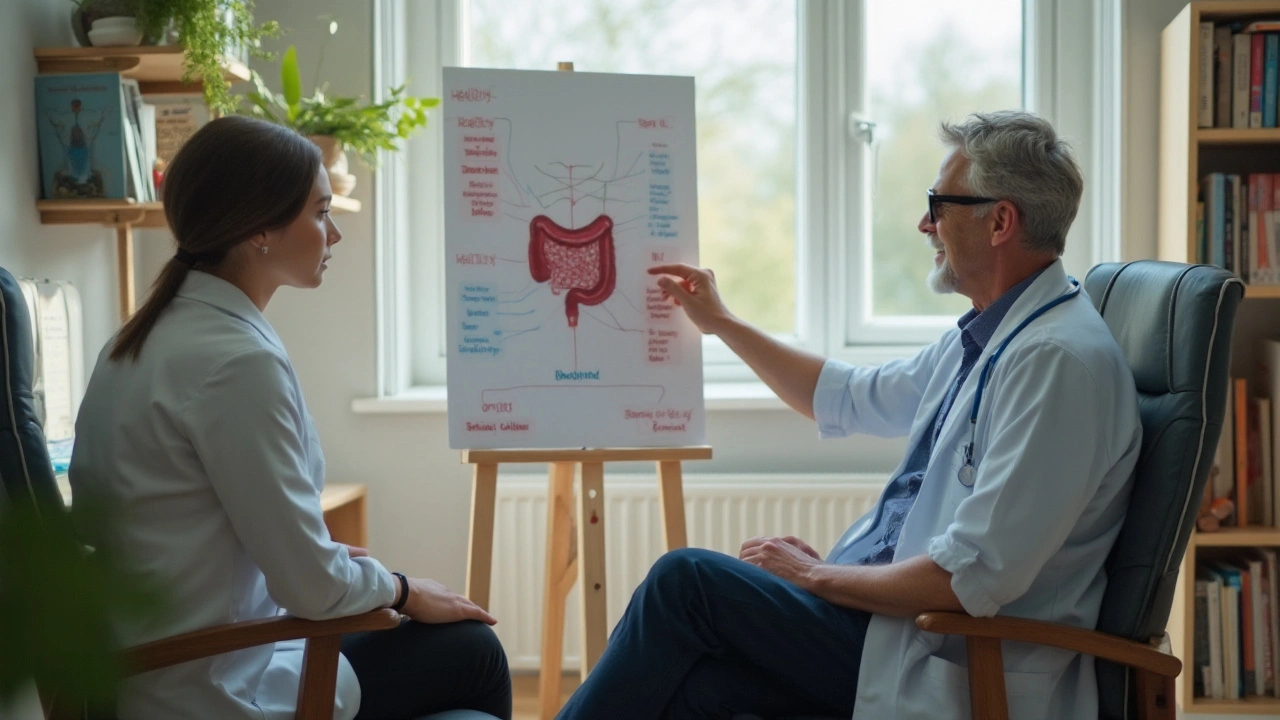Colon cancer (also called colorectal cancer) can feel scary, but knowing the signs and the steps you can take makes a big difference. You don’t need to memorize medical jargon — just learn the practical things that help catch it early or manage care if you get a diagnosis.
Screening saves lives. Many guidelines now recommend starting routine screening around age 45, earlier if you have a family history or certain risk factors. Your options include a colonoscopy (the most complete test), stool-based tests (like FIT or FIT-DNA), flexible sigmoidoscopy, or CT colonography. Stool tests are easy at home but need repeating each year or every few years, while a colonoscopy usually repeats every 5–10 years depending on findings.
If you notice blood in stool, a lasting change in bowel habits, unexplained weight loss, or ongoing abdominal pain, see a doctor right away. Those symptoms don’t always mean cancer, but they deserve a prompt check so problems get treated early.
Some risk factors you can’t change: age, personal or family history of colon polyps or colorectal cancer, and certain inherited conditions. Other risks you can lower: quit smoking, cut back on alcohol, be active, keep a healthy weight, and eat more fiber while limiting red and processed meats. Talk to your doctor about aspirin — it may lower risk for some people, but it’s not right for everyone.
If you’re diagnosed, treatment depends on the stage. Early-stage disease is often treated with surgery to remove the tumor. Later stages may need chemotherapy, radiation, targeted drugs, or immunotherapy. Ask your care team whether molecular testing (like MSI or KRAS) was done — results can guide targeted options and clinical trials.
Practical steps if you or a loved one faces colon cancer: keep all medical reports and test results in one folder, bring a list of medicines to appointments, and write down questions before visits. Good questions: What stage is it? What treatment do you recommend and why? What are the side effects? Are there clinical trials or second opinions we should consider?
Don’t forget support and finances. Cancer centers often offer patient navigators, social workers, and programs to help with costs or travel. Look for local support groups or online communities to connect with people who’ve been through it.
Read more guides on TotalCareMart Pharmaceutical Guide for practical info on treatments, medication tips, and finding financial help. If you haven’t been screened yet, book it — early detection makes treatment simpler and more effective.

Individuals with ulcerative colitis face a significantly higher risk of developing colon cancer, making it crucial to understand the link between these conditions. Both diseases impact the colon, but ulcerative colitis results in chronic inflammation, which over time can lead to the formation of cancerous growths. The article explores the biological relationship between these conditions, symptoms to watch for, and strategies to reduce cancer risk. It's essential for patients to have regular screenings and adopt a lifestyle that supports gut health.